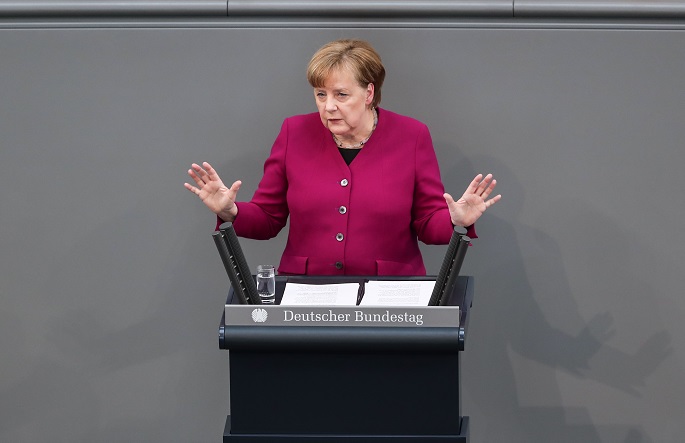Merkel critics draft alternative "conservative manifesto"
Published : 06 Apr 2018, 21:31
Internal critics of German Chancellor and Christian Democratic Union (CDU) leader Angela Merkel have drafted an alternative "conservative manifesto," newspaper Rheinische Post reported on Friday.
According to the report, the authors of the "conservative manifesto" hope to steer the CDU away from the moderate-centrist stance which it has increasingly adopted under Merkel.
During her more than 11-year reign, the chancellor has co-opted many social democratic policies in an attempt to transform the CDU into a "catch-all" party which defies a simple right-wing/left-wing categorization.
Despite being met with repeated electoral success in Germany, however, Merkel's ideological pragmatism has offended hard-line conservatives in her party. Amongst others, the group behind the alternative manifesto criticized the recent legislative introduction of same-sex marriage equality and urged the CDU to declare its firm support for a traditional family structure comprised of a "father, mother and child."
The "conservative manifesto" further calls for an abolition of dual citizenship, a reintroduction of mandatory national military service, lower taxes, and a greater focus on combating right, left and Islamic extremism. The document will reportedly be formally passed at the federal assembly of the "value union" founded by CDU politicians on the party's conservative wing a year ago.
Alexander Mitsch, president of the value union, demanded that Merkel refrain from seeking another term as party leader in the autumn. Mitsch argued that the CDU could only begin to renew itself when Merkel had stepped down.
Senior regional CDU politician Gregor Golland warned that many individuals in the CDU shared the views expressed in the "conservative manifesto", but had so far not dared to speak out. Merkel's refugee policies in particular had led party members to feel like the CDU was "no longer their home."
Merkel has faced growing resistance within some parts of the CDU since the conclusion of "grand coalition" negotiations in which she was attacked for offering significant policy concessions to the German Social Democrats (SPD) on health care, labor market policies and Europe.
Paul Ziemiak, leader of the CDU youth organization, has since publicly demanded the promotion of a younger generation of politicians in key party positions in order to signal to voters that the CDU still took their concerns seriously.


